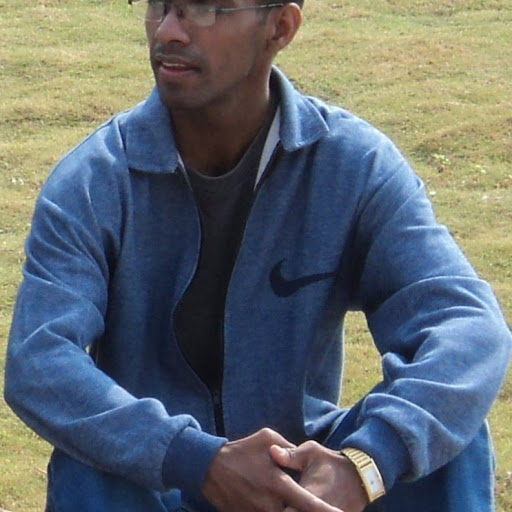Aravind Natarajan
age ~37
from Menlo Park, CA
Aravind Natarajan Phones & Addresses
- Menlo Park, CA
- Ithaca, NY
Work
-
Company:Stanford universityOct 2019
-
Position:Postdoctoral fellow
Education
-
Degree:Doctorates, Doctor of Philosophy
-
School / High School:Cornell University2012 to 2019
-
Specialities:Microbiology, Philosophy
Skills
Molecular Biology • Research • Biochemistry • Microbiology • Leadership • Protein Expression • Genetics • Public Speaking • Biotechnology • Genomics • Team Mentoring • Community Development • Community Engagement • Diversity and Inclusion • Western Blotting • Protein Engineering • Protein Purification • Molecular Genetics • Data Analysis
Languages
English • Tamil • Hindi
Ranks
-
Certificate:Facilitator, Annual Responsible Conduct of Research Workshop
Interests
Social Services • Children • Drug Discovery • Environment • Education • Global Sociopolitics • Science and Technology • Behavioral Economics • Animal Welfare • Synthetic Biology • Health
Industries
Higher Education
Resumes

Postdoctoral Fellow
view sourceLocation:
Alpharetta, GA
Industry:
Higher Education
Work:
Stanford University
Postdoctoral Fellow
Cornell University 2014 - Aug 2019
Research Mentor
Cornell University Jan 2019 - May 2019
Graduate Teaching Assistant Fellow
Cornell's Robert Frederick Smith School of Chemical and Biomolecular Engineering Aug 2018 - Apr 2019
Co-Lead, Diversity and Inclusion Program
Engineering Learning Initiatives College of Engineering Cornell University Jun 2014 - May 2018
Ta Development Consultant
Postdoctoral Fellow
Cornell University 2014 - Aug 2019
Research Mentor
Cornell University Jan 2019 - May 2019
Graduate Teaching Assistant Fellow
Cornell's Robert Frederick Smith School of Chemical and Biomolecular Engineering Aug 2018 - Apr 2019
Co-Lead, Diversity and Inclusion Program
Engineering Learning Initiatives College of Engineering Cornell University Jun 2014 - May 2018
Ta Development Consultant
Education:
Cornell University 2012 - 2019
Doctorates, Doctor of Philosophy, Microbiology, Philosophy Madurai Kamaraj University 2009 - 2011
Master of Science, Masters, Genomics Ramakrishna Mission Vivekananda College 2006 - 2009
Bachelors, Bachelor of Science, Biochemistry
Doctorates, Doctor of Philosophy, Microbiology, Philosophy Madurai Kamaraj University 2009 - 2011
Master of Science, Masters, Genomics Ramakrishna Mission Vivekananda College 2006 - 2009
Bachelors, Bachelor of Science, Biochemistry
Skills:
Molecular Biology
Research
Biochemistry
Microbiology
Leadership
Protein Expression
Genetics
Public Speaking
Biotechnology
Genomics
Team Mentoring
Community Development
Community Engagement
Diversity and Inclusion
Western Blotting
Protein Engineering
Protein Purification
Molecular Genetics
Data Analysis
Research
Biochemistry
Microbiology
Leadership
Protein Expression
Genetics
Public Speaking
Biotechnology
Genomics
Team Mentoring
Community Development
Community Engagement
Diversity and Inclusion
Western Blotting
Protein Engineering
Protein Purification
Molecular Genetics
Data Analysis
Interests:
Social Services
Children
Drug Discovery
Environment
Education
Global Sociopolitics
Science and Technology
Behavioral Economics
Animal Welfare
Synthetic Biology
Health
Children
Drug Discovery
Environment
Education
Global Sociopolitics
Science and Technology
Behavioral Economics
Animal Welfare
Synthetic Biology
Health
Languages:
English
Tamil
Hindi
Tamil
Hindi
Certifications:
Facilitator, Annual Responsible Conduct of Research Workshop
Teaching and Learning In A Diverse Classroom
Project Catalyst: ‘How To Engineer Engineering Education’
Teaching Inclusively
Teaching and Learning In A Diverse Classroom
Project Catalyst: ‘How To Engineer Engineering Education’
Teaching Inclusively

Aravind Natarajan Dallas, TX
view sourceWork:
Department of Computer Science, The University of Texas at Dallas
Jan 2012 to 2000
Graduate Research Assistant The University of Texas at Dallas
Richardson, TX
Sep 2010 to Jan 2012
Graduate Teaching Assistant Reputation.com
Redwood City, CA
Jun 2010 to Aug 2010
Software Engineering Intern
Jan 2012 to 2000
Graduate Research Assistant The University of Texas at Dallas
Richardson, TX
Sep 2010 to Jan 2012
Graduate Teaching Assistant Reputation.com
Redwood City, CA
Jun 2010 to Aug 2010
Software Engineering Intern
Education:
The University of Texas at Dallas
Richardson, TX
2010 to 2013
Doctor of Philosophy in Computer Engineering The University of Texas at Dallas
Richardson, TX
2007 to 2009
MS in Computer Engineering Maulana Azad National Institute of Technology
Bhopal, Madhya Pradesh
2003 to 2007
B.Tech in Electronics and Communication Engineering
Richardson, TX
2010 to 2013
Doctor of Philosophy in Computer Engineering The University of Texas at Dallas
Richardson, TX
2007 to 2009
MS in Computer Engineering Maulana Azad National Institute of Technology
Bhopal, Madhya Pradesh
2003 to 2007
B.Tech in Electronics and Communication Engineering
Skills:
Algorithms, Data Structures, Programming, Research

Aravind Natarajan Richardson, TX
view sourceWork:
Department of Computer Science, The University of Texas at Dallas
Jan 2012 to 2000
Graduate Research Assistant The University of Texas at Dallas
Richardson, TX
Sep 2010 to Jan 2012
Graduate Teaching Assistant Reputation Defender Inc.
Redwood City, CA
Jun 2010 to Aug 2010
Software Engineering Intern
Jan 2012 to 2000
Graduate Research Assistant The University of Texas at Dallas
Richardson, TX
Sep 2010 to Jan 2012
Graduate Teaching Assistant Reputation Defender Inc.
Redwood City, CA
Jun 2010 to Aug 2010
Software Engineering Intern
Education:
The University of Texas at Dallas
Richardson, TX
2010 to 2013
PhD in Computer Engineering The University of Texas at Dallas
Richardson, TX
2007 to 2009
Master of Science in Computer Engineering Maulana Azad National Institute of Technology
Bhopal, Madhya Pradesh
2003 to 2007
Bachelor of Technology in Electronics and Communication Engineering
Richardson, TX
2010 to 2013
PhD in Computer Engineering The University of Texas at Dallas
Richardson, TX
2007 to 2009
Master of Science in Computer Engineering Maulana Azad National Institute of Technology
Bhopal, Madhya Pradesh
2003 to 2007
Bachelor of Technology in Electronics and Communication Engineering
Skills:
Algorithm Design and Implementation, Parallel Programming.
Us Patents
-
Speculative Loop Iteration Partitioning For Heterogeneous Execution
view source -
US Patent:20180060130, Mar 1, 2018
-
Filed:Aug 24, 2016
-
Appl. No.:15/245604
-
Inventors:- San Diego CA, US
Han Zhao - Santa Clara CA, US
Aravind Natarajan - Sunnyvale CA, US -
International Classification:G06F 9/50
-
Abstract:Embodiments include computing devices, apparatus, and methods implemented by the apparatus for implementing speculative loop iteration partitioning (SLIP) for heterogeneous processing devices. A computing device may receive iteration information for a first partition of iterations of a repetitive process and select a SLIP heuristic based on available SLIP information and iteration information for the first partition. The computing device may determine a split value for the first partition using the SLIP heuristic, and partition the first partition using the split value to produce a plurality of next partitions.
-
Shared Virtual Index For Memory Object Fusion In Heterogeneous Cooperative Computing
view source -
US Patent:20180052776, Feb 22, 2018
-
Filed:Aug 18, 2016
-
Appl. No.:15/239937
-
Inventors:- San Diego CA, US
Arun Raman - San Francisco CA, US
Aravind Natarajan - Sunnyvale CA, US -
International Classification:G06F 12/109
-
Abstract:Embodiments include computing devices, apparatus, and methods implemented by the apparatus for implementing shared virtual index translation on a computing device. The computing device may receive a base virtual address for storing an output of a kernel function execution to a dedicated memory and determine whether the virtual address is in a range of virtual addresses for a privatized output buffer within the dedicated memory, which may be smaller than the dedicated memory. The computing device may calculate a first modified physical address using a physical address mapped to the base virtual address and an offset of a first processing device associated with the dedicated memory in response to determining that the base virtual address is in the range of virtual addresses. The computing device may store the output of the kernel function execution to the privatized output buffer at the first modified physical address.
-
Identifying Enhanced Synchronization Operation Outcomes To Improve Runtime Operations
view source -
US Patent:20170286182, Oct 5, 2017
-
Filed:Mar 30, 2016
-
Appl. No.:15/085108
-
Inventors:- San Diego CA, US
Gheorghe Cascaval - Palo Alto CA, US
Han Zhao - Santa Clara CA, US
Tushar Kumar - San Jose CA, US
Aravind Natarajan - Sunnyvale CA, US
Arun Raman - Fremont CA, US -
International Classification:G06F 9/52
-
Abstract:Embodiments include computing devices, systems, and methods identifying enhanced synchronization operation outcomes. A computing device may receive a first resource access request for a first resource of a computing device including a first requester identifier from a first computing element of the computing device. The computing device may also receive a second resource access request for the first resource including a second requester identifier from a second computing element of the computing device. The computing device may grant the first computing element access to the first resource based on the first resource access request, and return a response to the second computing element including the first requester identifier as a winner computing element identifier.
-
Random-Access Disjoint Concurrent Sparse Writes To Heterogeneous Buffers
view source -
US Patent:20170206035, Jul 20, 2017
-
Filed:Jan 19, 2016
-
Appl. No.:15/000667
-
Inventors:- San Diego, CA
Aravind Natarajan - Sunnyvale CA, US
Dario Suarez Gracia - Teruel, ES -
International Classification:G06F 3/06
G06F 12/10 -
Abstract:Methods, devices, and non-transitory processor-readable storage media for a computing device to merge concurrent writes from a plurality of processing units to a buffer associated with an application. An embodiment method executed by a processor may include identifying a plurality of concurrent requests to access the buffer that are sparse, disjoint, and write-only, configuring a write-set for each of the plurality of processing units, executing the plurality of concurrent requests to access the buffer using the write-sets, determining whether each of the plurality of concurrent requests to access the buffer is complete, obtaining a buffer index and data via the write-set of each of the plurality of processing units, and writing to the buffer using the received buffer index and data via the write-set of each of the plurality of processing units in response to determining that each of the plurality of concurrent requests to access the buffer is complete.
-
Data Management For Multiple Processing Units Using Data Transfer Costs
view source -
US Patent:20170060633, Mar 2, 2017
-
Filed:Aug 27, 2015
-
Appl. No.:14/837156
-
Inventors:- San Diego CA, US
Tushar Kumar - San Francisco CA, US
Aravind Natarajan - Sunnyvale CA, US
Ravish Hastantram - San Jose CA, US
Gheorghe Calin Cascaval - Palo Alto CA, US
Han Zhao - Santa Clara CA, US -
International Classification:G06F 9/50
-
Abstract:Various embodiments include methods for data management in a computing device utilizing a plurality of processing units. Embodiment methods may include generating a data transfer heuristic model based on measurements from a plurality of sample data transfers between a plurality of data storage units. The generated data transfer heuristic model may be used to calculate data transfer costs for each of a plurality of tasks. The calculated data transfer costs may be used to schedule execution of the plurality of tasks in an execution order on selected ones of the plurality of processing units. The data transfer heuristic model may be updated based on measurements of data transfers occurring during the executions of the plurality of tasks (e.g., time, power consumption, etc.). Code executing on the processing units may indicate to a runtime when certain data blocks are no longer needed and thus may be evicted and/or pre-fetched for others.
Flickr
Youtube
Myspace
Googleplus

Aravind Natarajan

Aravind Natarajan

Aravind Natarajan

Aravind Natarajan

Aravind Natarajan

Aravind Natarajan

Aravind Natarajan

Aravind Natarajan
view source
Aravind Natarajan
view source
Aravind Natarajan
view source
Aravind Natarajan
view source
Aravind Natarajan
view source
Aravind Natarajan
view source
Aravind Natarajan
view source
Aravind Natarajan
view sourceGet Report for Aravind Natarajan from Menlo Park, CA, age ~37












